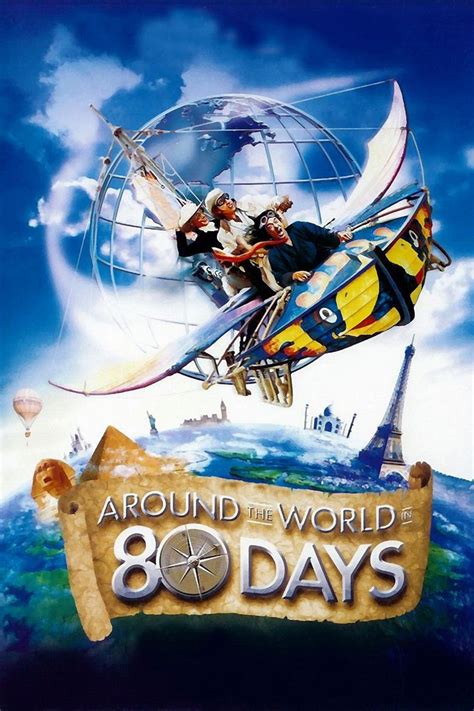Around the World in 80 Days

Description:
Around the World in 80 Days is a comedy adventure film based on the classic novel by Jules Verne. It follows the eccentric inventor Phileas Fogg as he attempts to circumnavigate the globe in 80 days to win a bet. Along the way, he encounters various challenges and makes unlikely friends, including a Chinese thief named Lau Xing. The film is filled with humor, action, and heartwarming moments as Fogg learns the true meaning of adventure and friendship.Keywords:
Adventure, Innovation, Humor, Travel, Friendship, Global AdventureIs Around the World in 80 Days based on a true story?
"Around the World in 80 Days" is not based on a true story, but rather is a fictional adventure novel written by Jules Verne, published in 1873. The story follows Phileas Fogg, who wagers that he can circumnavigate the globe in 80 days. While the novel features real locations and modes of travel, the plot and characters are entirely the invention of Verne. The story has been adapted into various films and television series, further popularizing its adventurous premise.
Who starred in the 1956 version of Around the World in 80 Days?
The 1956 version of "Around the World in 80 Days" starred David Niven as Phileas Fogg, Cantinflas as Passepartout, and Shirley MacLaine as Princess Aouda. Directed by Michael Anderson, the film is an adaptation of Jules Verne's classic novel and features a mix of adventure and comedy, showcasing Fogg's journey to circumnavigate the globe in 80 days. The film won five Academy Awards, including Best Picture.
What is a summary of around the world in 80 days?
"Around the World in 80 Days" follows Phileas Fogg, a meticulous British gentleman who wagers that he can circumnavigate the globe in just 80 days. Accompanied by his loyal French servant, Passepartout, Fogg embarks on a thrilling journey filled with adventures and challenges across various countries. As they travel by train, ship, and even elephant, they face obstacles, including a persistent detective who believes Fogg is a thief. Ultimately, the journey tests Fogg's determination, leading to unexpected friendships and insights about life.
Is around the world in 80 days racist?
"Around the World in 80 Days," both the original novel by Jules Verne and its film adaptations, reflects the colonial attitudes of its time, which can be perceived as problematic by modern standards. The portrayals of different cultures often rely on stereotypes and may perpetuate colonialist views. While the story emphasizes adventure and curiosity, it can also be critiqued for its lack of nuanced representation of non-Western societies. Discussions on its racial elements are important to understand the context and evolution of cultural perspectives in literature and film.
Explore More Categories:
Surreal Visuals Intimacy Crusades Intense Relationships Scarcity Excess Mind Control Government Hallucinatory Human Resilience Margaret Thatcher Psychological Horror Teen Collaboration Colorful Social Satire Dual Identity Family Street Racing Legal System Biographical Audacity Prejudice Kumite Disconnectedness